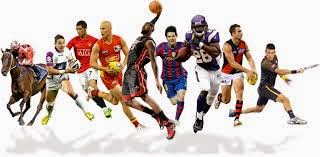Falcao in profile
Radamel
Falcao shone from a very early age, setting a record for the youngest debutant
in the Colombian second division.
It was not
an isolated appearance either and during his first campaign the junior scored
his first senior goal too. It was no surprise that within two years he moved
onto the big stage in Argentina, joining the famous River Plate in 2001.
Naturally,
Falcao stepped back down the age levels on arrival at the Buenos Aires club but
after featuring regularly for the youth team, he was handed a first-team debut
there in 2005.
Falcao was an integral member of the side under manager Diego Simeone, whom he would later work with again at Atletico Madrid. That, however, was not the emerging star’s first destination when the time came to make his name in Europe.
He ended his time at River Plate with 45 goals in 111 games and enjoyed a wonderful start to his time at Porto, scoring in his opening four matches in the Portuguese league in 2009.
His Champions League debut came soon after, as a second-half substitute at Stamford Bridge. Though on that occasion John Terry, Petr Cech, Branislav Ivanovic and co. kept a clean sheet, later the same month Falcao scored his first goal in the competition, against Atletico.
The 2010/11 season was another prolific one for the Colombian, who broke Jurgen Klinsmann’s record for the most goals scored in a UEFA Cup/Europa League campaign. His 17 included hat-tricks against Rapid Vienna and Spartak Moscow, before going one better with four goals against Villarreal in the semi-final first leg. For the second year running he was the man for the big occasion when it came to a cup final, netting the only goal of the game in Dublin in an all-Portuguese Europa League decider against Braga.
Falcao also played a major role as Porto won their domestic league, going through the whole season unbeaten.
Having caused Spanish clubs plenty of pain, in the summer of 2011 he crossed the border to become Atletico’s record signing, their choice to take the place of Manchester City-bound Sergio Aguero.
Falcao made his debut in a league game away at Valencia and a week later endeared himself to supporters with a wonderful hat-trick against Racing Santander. His consistency in front of goal was hugely impressive and he quickly became pivotal in Atletico’s attacking play. In a brilliant first season he scored 23 league goals and continued to enjoy a fruitful time in European competition, as top scorer in the Europa League for a second season in a row, including a brace in the final as Atletico beat Athletic Bilbao 3-0 in Bucharest.
That result
set-up a meeting with Chelsea in the UEFA Super Cup following our Champions
League triumph, and in the game in Monaco it was Falcao who shone brightest as
he scored a hat-trick in Atletico’s 4-1 win. A left-footed strike into the top
corner from the edge of the penalty area was the stand-out strike and he
remains the only player to score a hat-trick in the Super Cup in its current
format.
He was also on target against both Barcelona and Real Madrid in league matches. In the Copa del Rey final against their city rivals, Falcao emphasised he is far more than just a goalscorer with a magnificent piece of play to lay on Atletico’s opening goal for Diego Costa, as they came from behind to lift the trophy.
Falcao made his return at the start of last season before a loan move to Manchester United just before the closing of the summer transfer window. He made his Premier League debut in a 4-0 win over Queens Park Rangers, the Old Trafford outfit’s first victory of the season, and scored his first goal in a 2-1 win over Everton.
On the international stage, Falcao scored his first goal for Colombia as a 21-year-old. His first major tournament was the 2011 Copa America, where he scored twice as they reached the quarter-finals.
Although he missed last year’s World Cup through injury, Falcao more than played his part in helping Colombia reach the finals, scoring nine goals in qualification.
He was part of the squad, along with new Chelsea team-mate Juan Cuadrado, involved in the Copa America in Chile.









No comments:
Post a Comment